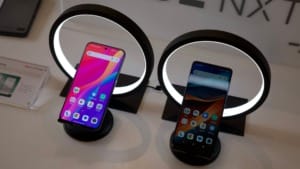Apple’s M5 chip will not be 2nm, set to arrive in late 2025
Apple’s M5 chip will use TSMC’s advanced 3nm process and debut in late 2025, likely in the iPad Pro, MacBook Pro, and Vision Pro devices.

Apple’s much-anticipated M5 chip has been confirmed to skip TSMC’s new 2nm process and rely on an enhanced version of TSMC’s advanced 3nm manufacturing technology. According to a report by The Elec, Apple has placed orders for the next-generation M5 chip, with mass production expected to begin in the second half of 2025.
This decision is linked to TSMC’s current manufacturing capabilities and Apple’s need to balance performance, efficiency, and production scalability. The M5 chip is poised to improve power efficiency and performance substantially, thanks to System on Integrated Chip (SoIC) technology—a cutting-edge 3D chip-stacking approach. This method is said to improve thermal performance and reduce electrical leakage, making it a significant step forward for Apple’s chip designs.
M5 chip to debut in select Apple devices
Industry experts anticipate that Apple’s M5 chip will initially feature in flagship products such as the iPad Pro, MacBook Pro, and the next iteration of the Apple Vision Pro. However, the timeline for the chip’s market debut remains uncertain.
If production stays on track, the first M5-powered devices could launch by late 2025. The MacBook Pro, a staple in Apple’s product line-up, is the most likely candidate for this early release. Alternatively, if Apple opts for a more measured rollout, the M5 could debut in early 2026, possibly starting with the iPad Pro and Apple Vision Pro.
Apple’s strategy to introduce the M5 chip in lower-volume devices like the iPad Pro and Vision Pro is logical. Initial production yields for new chip technology can be limited, and using these devices as testbeds allows Apple to refine the manufacturing process before scaling up to higher-demand products.
What this means for Apple users
The iPad Pro has historically been a testing ground for Apple’s chip innovations, having been the first to feature the current M4 chip. Similarly, Apple is reportedly working on a new version of its Vision Pro headset, which is expected to include the M5 chip. The headset’s focus on advanced mixed-reality experiences could greatly benefit from the M5’s improved efficiency and performance.
While Apple’s decision to bypass TSMC’s 2nm process may seem like a setback, it allows the company to leverage a refined and reliable 3nm process. This ensures stability and scalability for their products, keeping their competitive edge intact. As 2025 approaches, the anticipation for M5-powered devices continues to grow, with promises of groundbreaking performance awaiting Apple users.
















